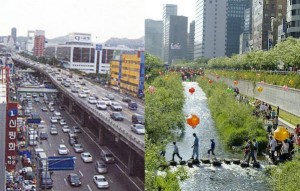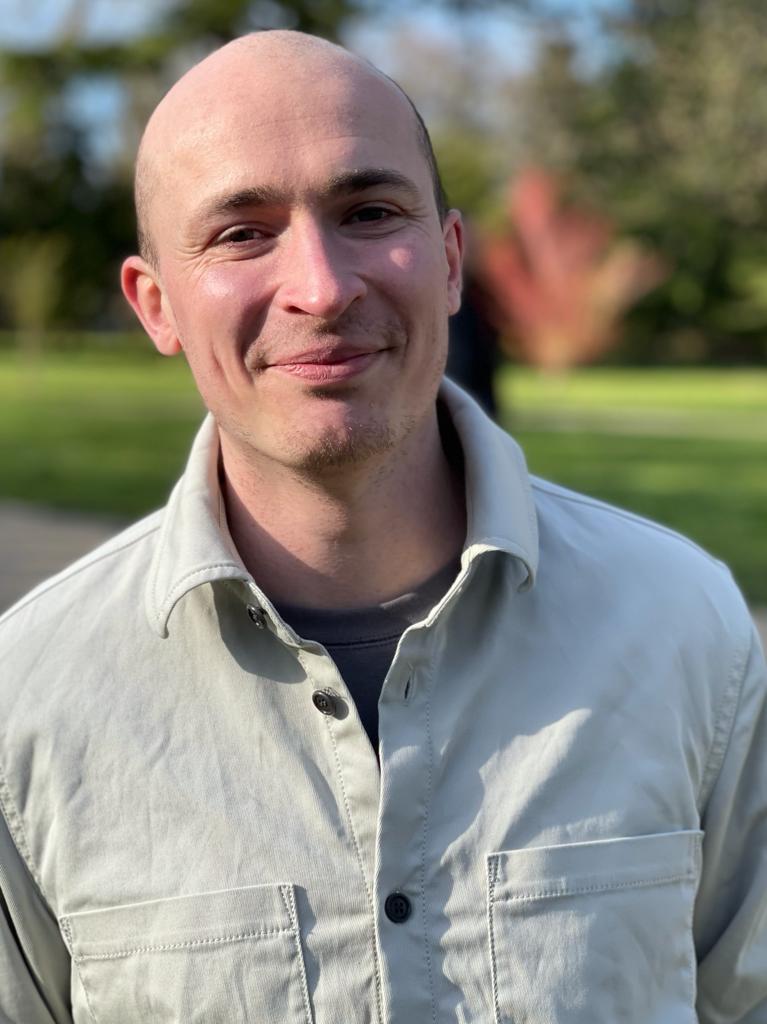This week we are focussing on our Uncertain World, with a host of events to meet with new communities, think around new ideas and establish new solutions for what’s in store for us in the future. We will be posting blogs every day this week on ‘Our Uncertain World’. Join the conversation with us on Twitter using the hashtag #UncertainWorld and contribute your thoughts and concerns to our (virtual) graffiti wall. Alternatively join us at our Question Time event on Wednesday 21 October at 6 pm and ask our local leaders how they will change their decision making as a result of our changing global environment. Tickets are free, book here.
———————————————————————–
Adaptation to climate change presents a unique challenge: the need to make important decisions on the basis of incomplete and uncertain information. We know that
future environments shall be different from today’s, but we cannot be certain of the specifics of this change. The pointing out of uncertainty in predictions is a central part of scientific training and provides an important source of transparency in research. However, this has provided climate-skeptics with ammunition on the future of the climate change, the science that explores it and the related policies of mitigation and adaptation. As
Adam Corner has written, the longer that the debates surrounding climate change focus on the uncertainty in future prediction, the less likely it is that any transformation will occur. A translation is necessary – and it is this that provides the focus of a series of events that the Cabot Institute is hosting on uncertainty, its role in our lives and climate change, and the opportunities that it can provide in moving forward.
A recent study has found that we, as individuals, have a tendency to prioritise daily experience over more-statistical knowledge – meaning that our personal experiences may have a greater influence on views of climate change than any conclusions drawn by the Intergovernmental Panel on Climate Change [1]. This is important: the complexity of society, ourselves and our relationships mean that we live with uncertainty every day. It is this socialised form of uncertainty, present across our world, that this public dialogue sought to explore and understand on the 17th October. Led by Hayley Shaw of the Cabot Institute,
this event gave the impetus (and the microphone) to members of the public – allowing the communication of how uncertainty is felt in everyday life, its driver, and hopes and fears within an uncertain future.
The event placed its starting point at the (what would seem simple) question of ‘what is that makes a good and happy life?’ An admission: I am 25 years of age and have never even come close to seeking an answer to this question. Perhaps this is symbolic of my skewed personal priorities, or perhaps it points to something larger – our detachment from the elements of life that we enjoy and take for granted. It is this latter symbolism that guided much of the room’s deliberations – with a focus on the privileges we enjoy often being absent in other parts of the globe. Freedom, security and peace; physical and mental wellbeing; and access to basic resources to fulfil fundamental needs were all mentioned heavily. However, conversations also discussed on the more deliberative elements of life, such as autonomy and empowerment, justice and cultural and intellectual wealth. All of which were perceived by participants as never certain.
There were a number of notable themes that participants drew from these discussions. Firstly, was the near-complete focus on the personal and local level, with limited mentioned of our relationships with our state. Second, all characteristics of ‘a good life’ discussed possess a dual role: of both a driver towards and consequence of happiness. For example: many groups spoke about the need for a sense of purpose to truly enjoy life. However, if we to build a flow chart of these elements of a good life, where would we place motivation and self-worth? Whilst some would place it at the end, with a sense of purpose built by security, health and autonomy. I’d imagine that Iain Duncan Smith would disagree, placing it at the beginning as the gateway to personal growth.
Lastly, these points of stability often compete with each other – resulting in competition and trade-offs between them. It is this presence of uncertainty in securing many of these points that opened up an important conversation surrounding how these can be achieved, and the factors that influence their foundations. The economy reigned supreme in many of these deliberations – with the important links between personal income and fulfilling of basic human needs of food, health and shelter often asserted. Common themes of discussion also focused on the issues of migration and multiculturalism, justice and equality, and the nature of the globalised world and trade. Significantly, these are all systems that not only drive uncertainty but are products of it also.
 |
| Comments from the public during the event on Saturday 17 October. |
Lastly, the group explored strategies of resistance against these forms of uncertainty. In these discussions, it was our understanding of these drivers of precariousness that provided our personal routes forward – be it via the personal choice of taking money outside of the globalised economy, or the need for solidarity, dialogue and knowledge-exchange as a means to challenge injustices. Notably, many of the answers often lay in the community and individual action, rather than the state – perhaps illustrated by the rise of food banks and cooperative endeavours as a means to fulfil important roles that the state does not.
With uncertainty providing an important issue in the communication of climate change, it was eye-opening to explore its sources in day-to-day life. The message from this event was simple: we all experience, explore and rebel against unpredictability on a daily basis – ranging from the mundane to the existential. However, these sources result in an increased degree of imagination and flexibility in our navigation of life. Without it, life would be pretty dull. Unpredictability does not restrict us from making important everyday decisions – so why should it inhibit any response to climate change? Uncertainty should not always be a dirty word.
References
[1] Anthony G. Pratt & Elke U. Weber (2014), Perceptions and communication strategies for the many uncertainties relevant for climate policy. Wiley Interdisciplinary Reviews. 5(2): 219-232.





